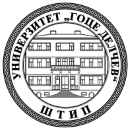CHARACTERISTICS OF THE FAMILY MODELS IN URBAN AND RURAL AREAS


Abstract
A large segment of the history of family functioning is dominated by the traditional family model, which is initially associated with existence in rural areas and it has been characterized with authoritarianism, predictability, repeatability, and solidarity. However, with the processes of industrialization and urbanization, the family is facing new challenges and problems. Following such social changes, the need for a functional family reorganization is inevitable. New urban living prosperity way of living created a model of a modern nuclear family with their own characteristic. The processes of globalization clearly affect the changes of the primary group, ie its functions on a global level. However, the question is whether today, taking into account all these changes and influences, different family models are still observed in urban and rural areas. This research is aimed to analyze the impact of urban and rural areas on the characteristics of family models. A quantitative survey of 30 families will be conducted, of which 15 from urban and 15 from rural areas. The analysis of the answers will be used to determine the similarities and differences of family models that exist in different environments.
Keywords: family, family model, rural environment, urban environment ….
